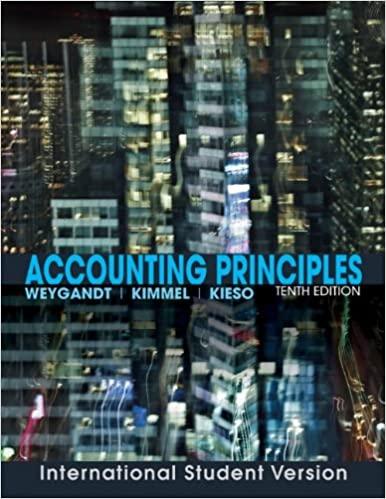Question
Mr. Agirich has provided the following information and ratios for the Aggie Farms 20X0 operations: Average Total Assets = $840,000 Average Total Liabilities = $395,000
Mr. Agirich has provided the following information and ratios for the Aggie Farms 20X0 operations:
Average Total Assets = $840,000
Average Total Liabilities = $395,000
Net Farm Income before taxes = $74,800
Interest Paid and accrued = $26,000
Income Taxes Paid = $9,000
ra = Net Farm Income before tax + Interest/Average Farm Assets
Assets=Debt + Equity
1.
Based on this information, what is the projected Rate of Return on Equity after taxes, re, for Aggie Farms in 20X1? (Assume that the tax rate, t is 15% and the Rate of Return on Assets before taxes, ra , will continue as reflected for 20X0 and that the future cost of debt, i, will be 10%. Use the equation presented in class to calculate the projected r. Use the information above to calculate ra . Remember that Net Farm Income before taxes is from the Income statement and is after interest.
The projected Rate of Return on Equity after taxes is 11.7% .
2.
What might Mr. Agirich do to increase the rate of return on equity after taxes?
Which of the following changes does not increase the rate of return on equity after taxes?
ANSWER: Reduce leverage
3.
What is the projected re for Aggie Farms in 20X1, if Mr. Agirich projects ra to be 5%? Keep everything else the same as before.
The projected Rate of Return on Equity after taxes is 0.5% .
4.
Mr. Agirich feels he needs to increase re to 13.6%. If he cannot increase return on assets nor decrease interest cost or the tax rate, how much additional debt will he need to incur to achieve the desired rate level of profitability (use the same ra that was calculated in problem 1)?
To achieve a re =13.6, the leverage ratio needs to be 2.0 .
How much additional debt will the farm need to incur to achieve a re to 13.6?
ANSWER: 495,000
5.
| Suppose Mr. Agirich borrows the additional money (problem 4). What is the projected re for Aggie Farms for 20X1, if Mr. Agirich projects the ra to be 5%? Keep everything else the same. |
The projected Rate of Return on Equity after taxes is -4.3% .
6.
Graph the relationship between growth and leverage. Use the solutions to problems 1,3,4, &5. In addition, calculate the projected re for the ra calculated in problem 1 and ra =5% assuming that leverage is zero. Put this information on the graph as well.
As leverage increases, the separation between the re increases for different rates of return to assets?
ANSWER: True
7.
Use the graph prepared in problem 6 to discuss why leverage is sometimes called a two-edged sword.
If the rate of return to assets is less than the interest rate, leverage accentuates losses in equity.
ANSWER: True
8.
| Assume you have been asked to help Mr. Agirich determine the optimal leverage for his firm. Mr. Agirich provides you with the following probability distribution for ra and you determine that his level of risk aversion is 2. Assume that i is 10%, and t=15%. Calculate the optimal leverage, expected re , the standard deviation of re and the coefficient of variation of re . |
What is the expected rate of return to assets?
ANSWER: 6.65%
What is the standard deviation of the rate of return to assets?
ANSWER: 12%
What is the optimal leverage?
ANSWER: 6.65%
What is the expected rate of return to equity?
ANSWER: 7.5%
What is the standard deviation of the rate of return to equity?
ANSWER: 7.5%
What is the coefficient of variation for the rate of return to equity?
ANSWER: 0.698
9.
You have tried to convince Mr. Agirich that it is important to prepare an accurate and professional set of pro forma financial statements to present to his lender to increase the credit available to Aggie Farms. Mr. Agirich says that he has borrowed all the money he wants to, therefore, any additional credit doesn't have any value. Please explain to him why it does.
Unused credit (credit reserves) has no value because it isn't being used for investments? true or false
Step by Step Solution
There are 3 Steps involved in it
Step: 1

Get Instant Access to Expert-Tailored Solutions
See step-by-step solutions with expert insights and AI powered tools for academic success
Step: 2

Step: 3

Ace Your Homework with AI
Get the answers you need in no time with our AI-driven, step-by-step assistance
Get Started


